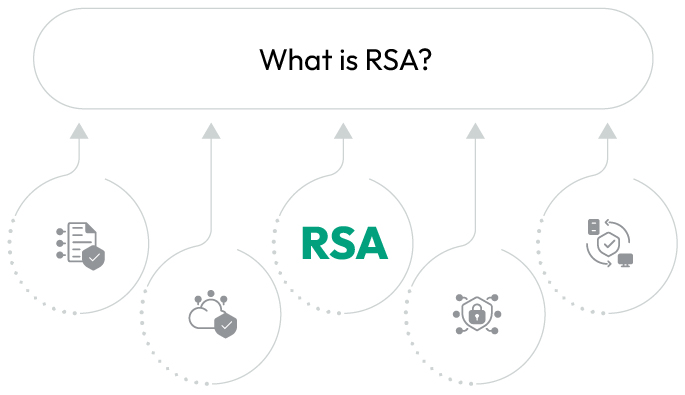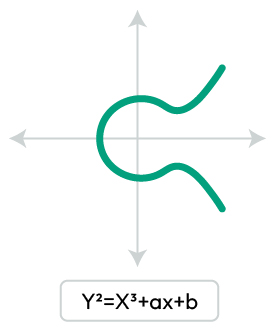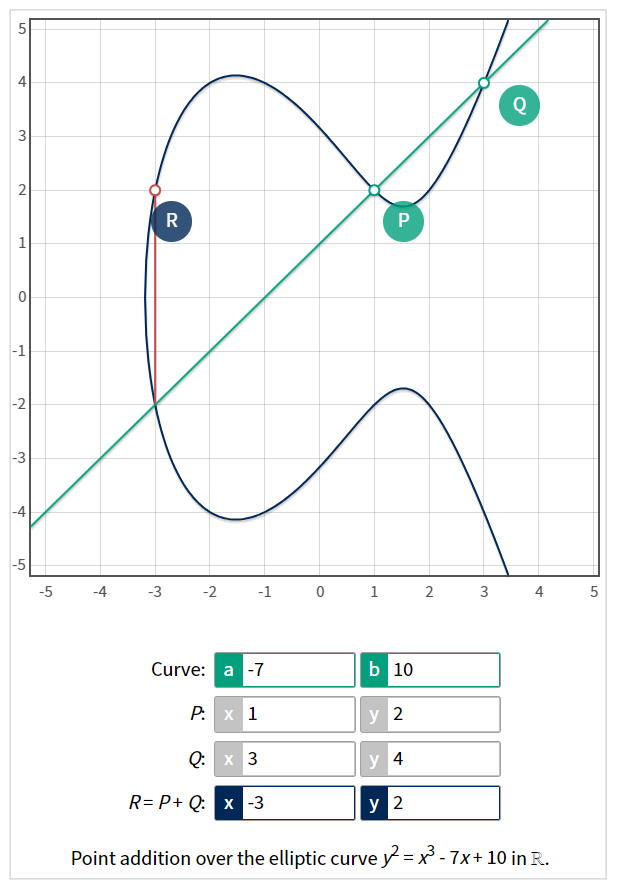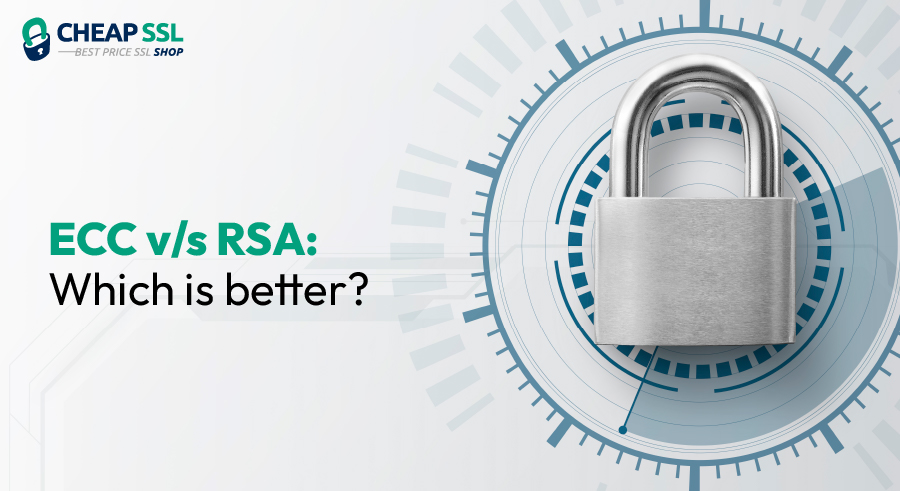ECC vs. RSA: Learn how to distinguish between the most popular encryption algorithms with the help of this guide.
If you were a guest at one of the popular MGM resorts in September 2023, your access card may have been useless. Why?
A ransomware attack on MGM halted all operations, including online payments and staff members asking guests to check in with physical keys. However, this is not a single event, and cybersecurity attacks are increasing daily, stressing the need for encryption algorithms.
However, the dilemma most businesses face is the choice of encryption algorithms. For example, a common debate among top CTOs and cybersecurity experts is whether to choose ECC or RSA algorithms.
Whether you are seeking a reliable yet affordable SSL solution or aiming to buy SSL certificates, this article will guide you to understand the encryption algorithm landscape. Keep reading!
What is RSA?
RSA is a public-key encryption algorithm that is used for secure data transmission, digital signatures, and in various security protocols. RSA algorithms use cryptographic technology to secure data, services, and applications. It is a suite of several cryptographic algorithms that enable public key encryptions.

Wondering what does RSA stand for?
RSA means Ron Rivest, Adi Shamir, and Leonard Adleman, the names of its founders from MIT in the US. RSA algorithms have two security keys. One is the public key, and the other is the private key, which encrypts and decrypts data.
RSA algorithms can secure the data transmission between two endpoints and ensure the recipient’s authentication. For example, if you are sending your credit card data to your friend so that he can use it for booking movie tickets, security is crucial.
Imagine losing your credit card data to a stranger. This is where a messaging platform with RSA algorithms becomes essential. Because it ensures that the data you send is only accessible to the intended recipient.
Advantages of RSA
RSA has many advantages, but if you want to choose it over ECC, you need to be mindful of its use cases. As a business, you need faster encryptions in real time for different operations, and RSA provides it. Another advantage is key exchange protocols which allow you to easily sign your deliverables.
Disadvantages of RSA
When you think of the disadvantages for RSA, one key aspect is vulnerabilities to batch GCD and quantum attacks. Another key aspect is the slow processing of signatures which can lead to higher latencies.
What is Elliptic Curve Cryptography?
ECC algorithms work on elliptic curve cryptography, which differs from RSA. It is an encryption algorithm that leverages elliptical curves based on advanced mathematics, and You can define elliptical curves in the form of a mathematical equation “y2=x3+ax+b.”

You may be wondering if an equation is what makes ECC different from RSA and more secure. The exact reason for ECC algorithms to be different from RSA lies in the elliptical curves. RSA has a mathematical equation at the core of its algorithm. Similarly, ECC has an elliptic curves equation which you need to solve to access data.
However complex it may look, ECC encryptions are robust because of this equation. Let’s understand how this works.

Take an example of data encrypted using elliptical curve cryptography. To access information, you need to solve a discrete algorithm with a problem where you need to find a specific point on the curve with respect to another endpoint. So, if you know where P is on the curve, determining a scalar k and point Q in such a way that Q=k*P is challenging.
This challenging aspect of solving the elliptical curve and accessing data makes it difficult for cyber attackers. This is why elliptical curve cryptography is considered robust compared to RSA. Though ECC is also a cryptographic algorithm, the core method to secure data is different from others.
But is ECC symmetric or asymmetric?
Yes, ECC encryptions are symmetric and have a pair of security keys each for encryptions and decryptions. A significant difference between RSA and ECC in implementing asymmetric cryptography is vital size. Because ECC leverages elliptic curve theory, the critical size is short, making it faster and leaner for businesses to implement.
Advantages of Elliptic Curve Cryptography
Opting for ECC algorithms over RSA comes with numerous advantages, especially when you understand your specific needs. For example, if you need faster digital signature latencies, RSA is not the right choice, but ECC makes sense.
ECC is also quite fast in generating keys for your encryptions, which is essential if you have intensive operations. Using ECC for mobile apps is also useful because it does not need that powerhouse to process encryptions.
Disadvantages of Elliptic Curve Cryptography
What makes ECC a powerful algorithm also acts as a disadvantage. For example, it has a complex algorithm based on the elliptical curve which is hard to break but also makes implementation a nightmare for many businesses.
Comparing Security Levels of ECC and RSA
Choosing the right cryptographic algorithms requires consideration of several factors, including core mathematical method, key size, security, and how fast it processes data. Based on these indicators and specific use cases, comparing ECC with RSA can help you decide which algorithm is best for your data.
Security of data exchanged between two endpoints is better with ECC due to elliptic curve cryptography. However, implementing RSA is far quicker than ECC, making it a better choice for specific use cases.
The level of security for any algorithm is a combination of key size and core mathematical method. For example, if you want to have 128 bits of security, you need a key size of 128-bit algorithm with elliptic curve keys of 256-bit length and 3072-bit RSA keys. So, if you want secure encryptions you need to compare both ECC and RSA based on key size combinations.
| Security bits | Symmetric encryption algorithms | Maximum size of public keys | |
|---|---|---|---|
| RSA | ECC | ||
| 80 | Skipjack | 1024 | 160 |
| 112 | 3DES | 2048 | 224 |
| 128 | 128-AES | 3072 | 256 |
| 192 | 192-AES | 7680 | 384 |
| 256 | 256-AES | 15360 | 512 |
As you can see from the above table, ECC has a lower key size, which is better for many security combinations and faster encryptions. For example, the above table shows that an RSA combination to achieve 256-bit security needs a 15360-bit RSA key which is challenging in computation for an embedded system or mobile device.
Public key cryptography is not attack-proof and can impact your choice of algorithms. Comparing ECC and RSA based on security, elliptic curve theory offers better security. RSA encryptions are also susceptible to batch GCD attacks. GCD, or Greatest Common Divisor, is a common prime number between two large primes you factor for data access in RSA.
On the contrary, ECC offers better protection against such attacks, so choosing elliptic encryption cryptography makes sense. But there are other factors that you need to consider before deciding between ECC and RSA.
ECC vs. RSA: Performance and Efficiency
Data processing performance and speed of encryptions are major differentiators between ECC and RSA. Faster encryptions are crucial if you have real-time functionality or require faster data processing. Take an example of a social media application where real-time feed needs dynamic data transmission from server to interface. It requires quicker processing, verifications, and encryptions.
If you compare both algorithms, ECC is faster in encryptions due to small-sized keys. However, the size of the data message the recipient receives increases, slowing the authentication process. On the other hand, processing power requirements for RSA algorithms are higher due to large prime numbers, which slows down encryptions.
ECC is far more efficient than RSA in key management and security due to its smaller key size. However, if you compare the efficiency of message delivery to the intended recipient, ECC does have issues due to the increased size of data files.
Now that you have compared both algorithms, it’s time to understand different use cases.
ECC and RSA: Use Cases and Practical Applications
RSA and ECC have specific use cases across business domains leveraging mathematical methods to secure data.
Some of the RSA use cases are:
- You can use RSA encryptions to secure eCommerce transactions and financial data of users.
- If you are in the healthcare industry, securing electronic health records (EHR) is easier with RSA algorithms.
- Many government agencies and military organizations also use RSA to secure communications and sensitive information.
- RSA can enable network and website security for large enterprises across domains.
Use cases for ECC are:
- ECC algorithms are most suitable for remote security devices and embedded systems like IoT.
- The space industry leverages ECC encryptions for applications like data security, industrial monitoring, and environment information control.
- Legacy communication protocols like Modbus TCP can be secured with ECC algorithms.
- Robotic systems like SCADA and automation machines use ECC for better data security.
- ECC needs low processing power, making it an ideal algorithm for secure mobile devices.
RSA vs. ECC: Key Differences and Considerations
Considering all the points discussed above, you can now compare both ECC and RSA based on factors like key size, core algorithms, and level of security.
| Differentiators | ECC algorithms | RSA algorithms |
|---|---|---|
| Core mathematical method | Elliptic curve equation
(y2=x3+ax+b) |
Factoring the product of two large prime members
(20 = 4 * 5 = 2 * 2 * 5 = 22 * 5) |
| Key size | Small | Large |
| Key management | Powered through exchange management protocols | Complexities in implementation |
| Security level | Higher with hard-to-break encryptions | Lower compared to ECC |
| Quantum resilience | Better than RSA | Lower |
| Message size | Larger | Smaller |
| Processing power | Lower | Higher |
If you compare ECC and RSA based on a core algorithm, complexity is crucial. So, RSA takes an advantage over ECC due to less complicated mathematical expression at the core of its algorithm. While in terms of key size and management, ECC takes the lead.
However, the level of security becomes vital, and here, too, ECC has an edge over RSA but lacks resilience against quantum computer attacks. Another aspect is processing power, and ECC again takes the lead due to lower memory usage and processing power needed.
Decision-Making: ECC or RSA?
Now it’s decision time! So, which one should you choose for your data security? If you compare all the aspects, ECC does have a clear edge on RSA algorithms. But, in real-world scenarios, decisions are never straightforward, so choosing between RSA vs ECC will depend on the specific use case.
When to use RSA?
- You need to secure communication between server and browser for your website.
- You need to ensure compliance with data regulation standards in a regulated industry.
- Your network security is crucial with several employees working remotely.
- You have to share public keys with a large number of audiences for data access.
When to use ECC?
- You need to secure embedded machines and IoT devices for your operations.
- Your system needs to secure remote data executions across the network.
- You need to secure highly confidential and sensitive information.
- You want to secure mobile apps developed for large-scale operations.
At CheapSSLShop, we prioritize strong encryption for online safety. Check out the options below, regardless of your preference for the reliability of RSA or the efficiency of Elliptic Curve Cryptography (ECC). Get the best deals with 24×7 technical support.
| SSL CERTIFICATES | TYPE | PRICE | BUY / RENEW |
|---|---|---|---|
| ClickSSL Standard SSL Certificate | DV | $3.99/yr. | Buy Now |
| EssentialSSL DV Certificate | DV | $5.99/yr. | Buy Now |
| EssentialSSL OV Certificate | OV | $25.00/yr. | Buy Now |
| PositiveSSL EV Certificate | EV | $50.00/yr. | Buy Now |
| EssentialSSL Wildcard Certificate | Wildcard | $39.00/yr. | Buy Now |
| PositiveSSL DV Multi-Domain Certificate | Multi-Domain | $15.00/yr. | Buy Now |
Conclusion
If you want to achieve the maximum level of security, getting the combination of algorithm and key size right becomes crucial. This makes the choice between RSA and ECC a little easier. But there are many other factors that you need to consider for making an informed decision.
ECC is a better option, but with the changing dynamics of encryption algorithms, you need to stay updated. ECC outshines RSA on many fronts, but the onset of quantum computing is changing the entire security perspective.


